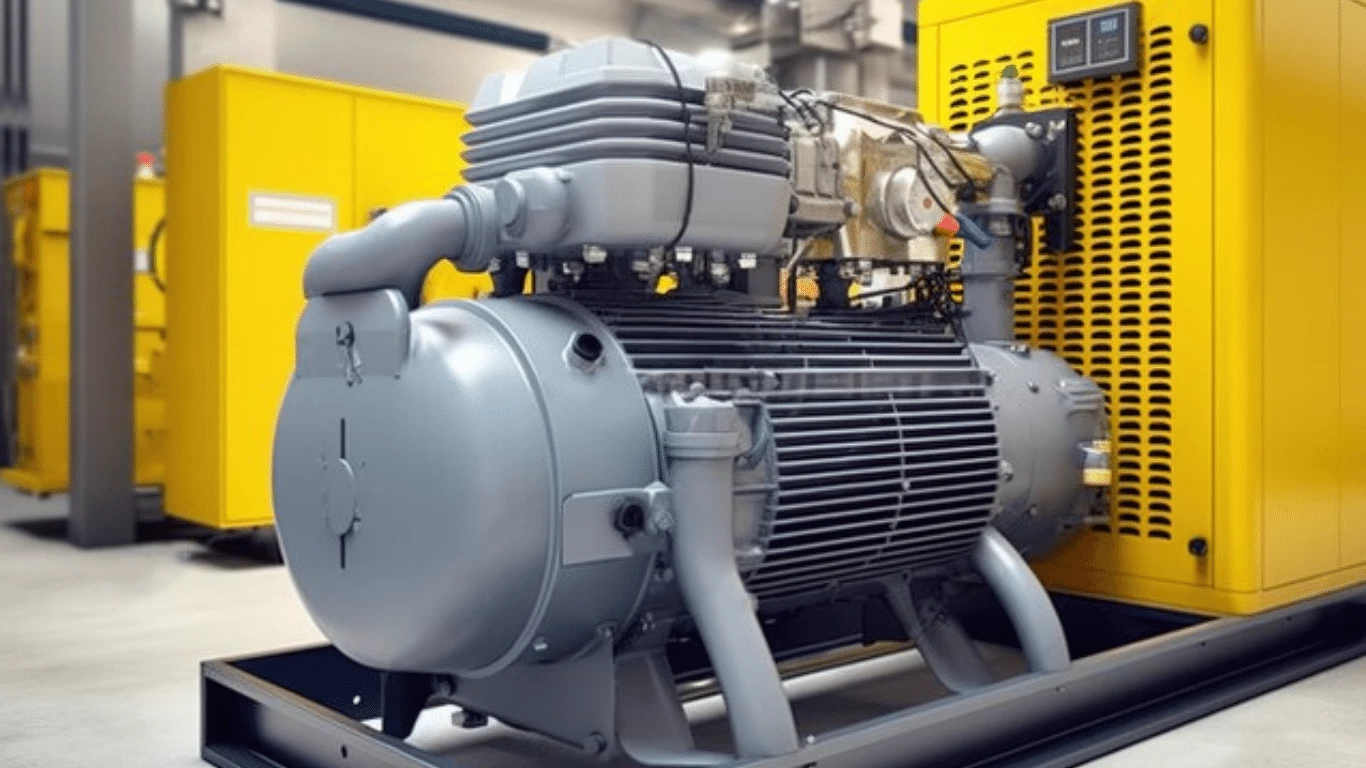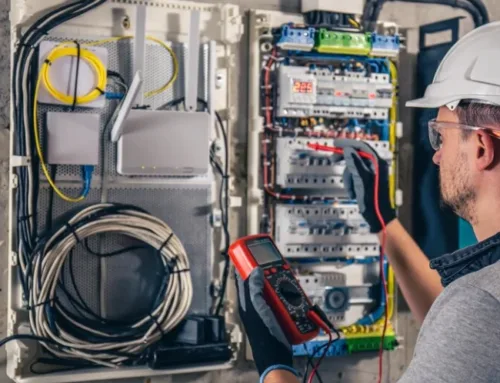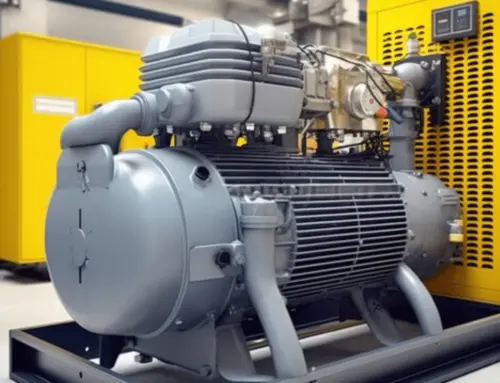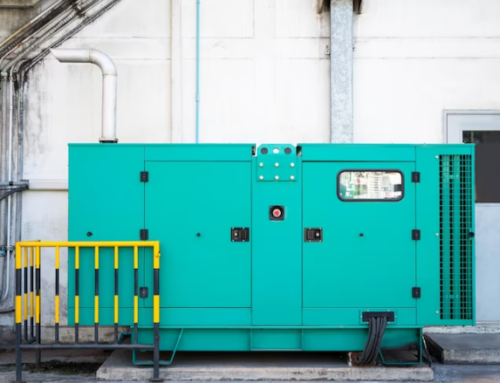Generators are crucial for many businesses, providing essential power during outages and ensuring continuous operations. Selecting the right generator for a commercial setting involves understanding the types available, their fuel options, power capacities, and other critical factors. This guide will help you navigate these choices effectively.
What Are The Main Types Of Generators Used In Commercial Settings?
Generators used in commercial settings come in several types, each suited for specific applications based on their design and functionality. The most common types include standby, portable, and inverter generators.
Standby Generators
Standby generators are permanently installed units designed to activate automatically during a power outage. These generators are directly connected to a building’s electrical system, providing a seamless transition that ensures no interruption to operations. They are essential in businesses where continuous power is critical, such as:
- Hospitals: Where lifesaving equipment must remain operational at all times.
- Data Centers: To prevent data loss and maintain server functionality.
- Manufacturing Facilities: To avoid production delays and equipment damage.
Portable Generators
Portable generators are versatile units that can be transported to different locations. These generators are often used in temporary settings where power is essential but only sometimes available. Typical uses include:
- Construction Sites: To power tools and machinery.
- Outdoor Events: Provide lighting, sound systems, equipment, and electricity.
- Emergency Situations: Offering a backup power source for small businesses and remote operations.
Inverter Generators
Inverter generators are a newer technology known for producing clean and stable power. They are ideal for running sensitive electronic equipment without the risk of power fluctuations. Key features and benefits include:
- Clean Power: Suitable for sensitive devices like computers, medical equipment, and communication devices.
- Quiet Operation: Because they are usually quieter, these generators are appropriate for settings where noise abatement is a priority.
- Fuel Efficiency: Over time, operating expenses may be decreased by using inverter generators because of their increased fuel efficiency.
The choice of generator depends on the business’s specific needs. Standby generators offer robust, continuous power for critical applications. Portable generators provide flexibility and convenience for temporary and mobile power needs. Inverter generators deliver clean, efficient power for sensitive equipment and noise-sensitive environments. Understanding these options helps businesses make informed decisions to ensure reliable power supply and operational continuity.
How Do Fuel Source Options Vary Among Commercial Generators?
Choosing the right fuel source for your commercial generator is crucial for ensuring reliable and efficient power supply. Here are the main fuel options available and their key features:
- Diesel: Diesel generators are known for their durability and efficiency. They offer high power output and are ideal for heavy-duty applications. Diesel is also readily available and has a longer shelf life compared to other fuels. However, they can be noisy and emit more pollutants.
- Natural Gas: Natural gas generators are a popular choice for commercial use due to their cleaner emissions and quieter operation. They are connected directly to the gas line, eliminating the need for fuel storage. While they are generally more expensive to install, they provide a constant fuel supply, making them highly reliable.
- Propane: Propane generators offer flexibility as they can be stored in large tanks on-site. They burn cleaner than diesel and gasoline, reducing environmental impact. Propane has a long shelf life, but the initial setup can be costly, and fuel delivery logistics must be managed.
- Gasoline: Gasoline generators are typically used for smaller, portable applications. They are easy to refuel and widely available. However, gasoline has a shorter shelf life, and these generators are less efficient for long-term, heavy-duty use due to higher fuel consumption and emissions.
- Dual-Fuel: Dual-fuel generators can operate on two different types of fuel, usually gasoline and propane. This versatility ensures you have a backup fuel option, enhancing reliability and convenience. They are a bit more complex but offer flexibility in fuel choice.
Choosing the right fuel source depends on your specific needs, budget, and environmental considerations. Each option has its own set of advantages and potential drawbacks, so it’s essential to evaluate what works best for your commercial operations.
What Factors Should Be Considered When Choosing A Generator For Commercial Use?
Selecting the right generator for commercial use involves considering several critical factors to ensure it meets your business’s specific needs.
Firstly, evaluate your operations’ power requirements. Determine the total wattage needed to keep essential systems and equipment running during an outage. This calculation should include the immediate power needs and any future expansion plans.
Secondly, the installation and maintenance requirements must be considered. For standby generators to operate dependably, expert installation and routine maintenance are necessary. Examine the installation area provided and the maintenance staff’s ease of access.
The generator’s runtime and fuel economy are also crucial factors. Different generators have varying runtimes based on their fuel type and consumption rate. Choose a generator that can run for extended periods without frequent refueling, especially if your business is in an area prone to long power outages.
Noise level is another consideration, particularly if the generator will be installed near occupied areas. Inverter and natural gas generators are typically quieter, which may be a critical factor for businesses where noise could disrupt operations or disturb nearby residents.
Lastly, consider the generator’s environmental impact. Diesel generators produce more emissions, while natural gas and propane offer cleaner alternatives. When selecting your generator, evaluate any local regulations regarding emissions and environmental impact.
How Does The Power Capacity Of A Generator Affect Its Suitability For Commercial Applications?
The power capacity of a generator, measured in kilowatts (kW), is a crucial determinant of its suitability for commercial applications. Choosing a generator with the appropriate power capacity ensures that your business can maintain operations during an outage without overloading the generator or experiencing power shortages.
A generator with insufficient power capacity will need help to support all the necessary equipment and systems, leading to potential damage and operational disruptions. On the other hand, a generator with excess capacity may lead to higher initial costs and unnecessary fuel consumption.
To determine the appropriate power capacity, list all the critical systems and equipment that must remain operational during a power outage. Calculate the total wattage required, considering the startup surge power needed for some equipment. It’s advisable to consult with an electrical engineer or a professional generator installer to ensure accurate calculations.
Understanding the different types of generators, fuel options, and key factors in selecting the right unit is essential for any business. You can choose a generator that ensures reliable and efficient backup power for your commercial operations by carefully evaluating your power and operational requirements.
FAQs
Q: How do I determine the right size generator for my business?
A: The size of the generator depends on the total wattage required to power your critical systems and equipment. Our team will thoroughly assess your power needs and recommend the appropriate generator size.
Q: What maintenance is required for commercial generators?
A: Regular maintenance is crucial to ensure the reliability of your generator. This includes routine inspections, oil and filter changes, and load bank testing. Starnes Electric LLC offers comprehensive maintenance plans to keep your generator in optimal condition.
Q: How long does the installation process take?
A: The installation timeline can vary depending on the project’s complexity and the generator type. Typically, the process takes one to two weeks, including the assessment, installation, and testing phases.
Q: Are financing options available?
A: Yes, we offer flexible financing options to make investing in a reliable generator for your business easier. Our team can help you explore the best financing solutions for your budget.
Ensure Your Business Stays Powered with Starnes Electric LLC
Don’t let the next blackout deter you from appreciating the value of a dependable generator. Get in touch with Starnes Electric LLC right now to arrange a consultation and learn how we can offer you the ideal generator for your business requirements. Our team is ready to assist you in keeping your business up and running, no matter the circumstances.
To learn more and get started, call us at (803) 280-3510 or visit our website at https://starneselectricllc.com/.
With Starnes Electric LLC, you’re getting a generator and a partner committed to your business’s success. Trust us to provide the power you need to stay ahead and keep your operations running smoothly. Contact us today, and let’s power your future together!






